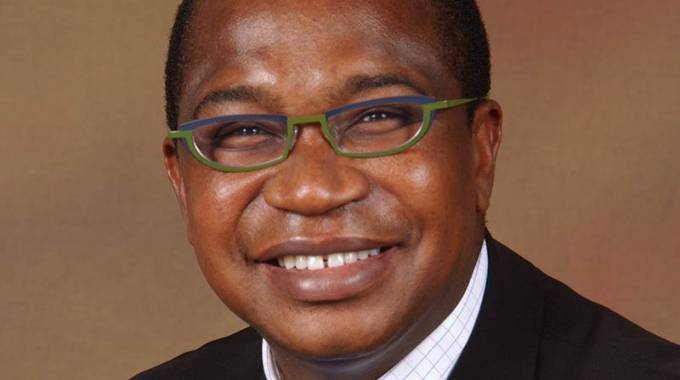
The Sunday Mail

Business Reporter
INDUSTRY representative body, the Confederation of Zimbabwe Industries (CZI), says the Government should not allow economic gains achieved in 2021 to be reversed and urged authorities to further sustain currency stability.
The operating environment improved significantly last year driven by slowing inflation, exchange rate stability and an effective
Covid-19 management programme.
CZI chief executive officer Ms Sekai Kuvarika told The Sunday Mail Business that industry now knows what a stable environment can produce, as well as indicators of that stability.
“When we start losing those indicators, we need to act quickly before problems mutate,” she said.
“In the first half of 2021, foreign currency was available on the formal market (auction), the parallel market premium was small, energy was available and of course we saw growth in the manufacturing and other sectors.
“However, the biggest challenge and risk in the economy remains the currency issue. The exchange rate and the parallel market premium have created distortions and arbitrage opportunities that punish exporters and those engaged in formal productive activities.”
Industry, Ms Kuvarika added, spent the better part of the second half of 2021 lobbying the Government to refine the foreign currency auction system, but progress was a bit slow.
“The challenge with this is that policy correction procrastination allows problems to mutate and become more complex and difficult to resolve.
“Let us also agree to the urgency with which we need to resolve the currency issue.”
Industry and Commerce Deputy Minister Raj Modi told our Bulawayo Bureau last week that efforts to revive Bulawayo industries gained momentum in 2021 on the back of sustained stability.
Unlike in recent years, where the second-largest city suffered massive closures and relocation of big companies, the tide is turning as more companies are now expanding capacity and growing exports.
The Second Republic under the leadership of President Mnangagwa is working closely with the private sector to roll out comprehensive reforms.
Already, Bulawayo companies such as diversified Treger Group of Companies, Archer Clothing, United Refineries Limited, Sheppco BMA Fasteners, Metal Founders, Datlabs, Kango Products, Zambezi Tanners, General Beltings and Arenel are emerging stronger despite headwinds caused by the coronavirus.
Deputy Minister Modi insists that positive prospects lie ahead for the city’s businesses this year.
“Definitely, we are very positive about the gains achieved so far. 2021 ended on a positive note and we are going forward to achieve more,” he said.
“You can also see that companies like National Blankets, which closed shop some years back, are now back on their feet and we are helping them retool.
“We expect National Blankets to come out stronger and the Government is prepared to support it.
“We are looking at such industries according to sectoral value chains and we expect many factories to reopen. We are working to resuscitate more and big things will happen in Bulawayo.”
According to Finance and Economic Development Minister Professor Mthuli Ncube, the manufacturing sector growth is expected to remain positive at 5,5 percent in 2022 and will be underpinned by tax incentives aimed at stimulating growth.
Presenting the 2022 Budget, Minister Ncube said the Government will facilitate the shift towards production of high-value manufactured products that contribute more to output, export earnings and create decent jobs.
“The growth is being sustained by relatively high consumer demand mainly from increased incomes from agricultural activities, infrastructure spending, increased mining activity and general reopening of the economy,” he said.
In order to sustain the growth momentum, the Ministry of Industry and Commerce was allocated $3,9 billion, which will be channelled to capacitate industry.
In 2021, growth in the manufacturing sector was reviewed downwards to 6,2 percent from the initial projection of 7 percent on account of Covid-19 lockdown measures, delays in accessing foreign currency and intermittent electricity.
However, in the 2022 Budget, there were revenue generating measures to maintain fiscal stability through stimulating growth of productive sectors, enhancing revenue collection, providing relief and simplifying tax administration to improve the business environment.
From 2009, the Government has been providing tax rebates and deferring Value Added Tax (VAT) to manufacturing, mining, tourism, agriculture, transport, energy and health sectors in order to lower production costs.
The 2022 Budget also provides for the duty-free import of capital equipment.
“Cognisant of the wide usage of such capital equipment by productive sectors, and the need to ease the cost of doing business, I propose to provide duty-free importation of the capital equipment through the tariff regime,” said Minister Ncube, adding the measures will take effect from July 1, 2022.
In the interim, the Government will strengthen provisions governing the facility to minimise loopholes in administration.



